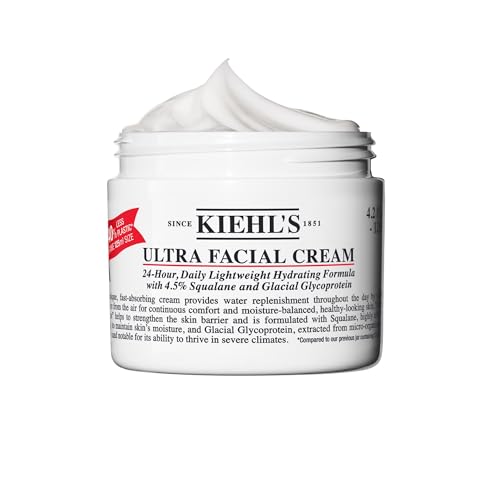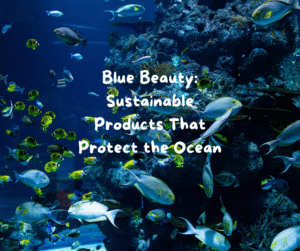This post may contain affiliate links. I may receive compensation if you sign up for or purchase any products through the links below. As an Amazon Associate and affiliate marketer for many other businesses, I earn from qualifying purchases. Please read my disclosure for more information.
The skin barrier, also known as the stratum corneum, plays a crucial role in maintaining overall skin health. This outermost layer of the skin is primarily composed of dead keratinocytes and is fortified by a mixture of lipids, including ceramides, fatty acids, and cholesterol. Together, these components create a protective shield that serves multiple vital functions. One of the primary functions of the skin barrier is to protect the underlying layers from external aggressors such as pollutants, bacteria, and various environmental factors that can lead to skin issues.
In addition to protection, the skin barrier is integral in moisture retention. It effectively regulates water loss through transepidermal water loss (TEWL), ensuring that the skin maintains optimal hydration levels. When the skin barrier is compromised, due to factors such as harsh weather, irritants, or even certain skincare products, it can lead to increased TEWL, resulting in dry, flaky, and irritated skin. Thus, a healthy skin barrier is essential for maintaining skin’s elasticity and suppleness, contributing significantly to an individual’s overall skincare regimen.
The structure of the skin barrier is sophisticated and multilayered. The lipid layers interspersed among the keratinocytes play a pivotal role in ensuring that the barrier functions effectively. These lipids not only provide a physical barrier but also aid in cell signaling and the overall moisture content of the skin. Maintaining the integrity of the skin barrier is vital for the aging population, as as skin matures, its ability to repair and regenerate diminishes. Understanding this structure and its functions lays the groundwork for addressing various skin concerns related to aging, making barrier repair a promising frontier in anti-aging skincare.
The Role of Ceramides in Skin Barrier Repair
Ceramides are integral components of the skin barrier, playing a crucial role in maintaining skin hydration and protecting against moisture loss. These lipid molecules, which account for approximately 50% of the skin’s composition, help form the protective outer layer known as the stratum corneum. When the skin’s barrier is functioning optimally, ceramides act to retain water, keeping the skin plump and hydrated. However, the levels of ceramides can decline with age and can be significantly impacted by environmental stressors such as pollution, harsh weather, and UV exposure.
As individuals age, skin naturally loses its ceramide content, leading to a weaker barrier and increased susceptibility to dryness and irritation. This decline can also exacerbate the appearance of fine lines and wrinkles, contributing to the aging process. Additionally, lifestyle factors such as inadequate hydration, poor nutrition, and prolonged exposure to the sun can further diminish ceramide levels in the skin. Recognizing the importance of these vital components in skin barrier repair is essential for those looking to maintain youthful skin.
Incorporating ceramide-rich products into one’s skincare routine can deliver numerous benefits for anti-aging efforts. These products help replenish the skin’s natural ceramides, restoring moisture balance and enhancing the skin’s resilience. As a result, they can improve skin texture and elasticity while minimizing the appearance of fine lines and wrinkles. When selecting skincare formulations, it is beneficial to look for key ingredients that include ceramides, along with other lipid molecules that support barrier health. This tailored approach can not only rejuvenate the skin but also bolster its defenses against future damage, making ceramides an essential target in comprehensive anti-aging skincare strategies.
The Microbiome: A Key Player in Skin Health
The skin microbiome, a complex ecosystem of microorganisms residing on the skin’s surface, plays an essential role in maintaining overall skin health and barrier function. This intricate web of bacteria, fungi, and viruses helps to protect the skin from external threats, such as pathogens and environmental pollutants, while also regulating various skin functions. A balanced skin microbiome is crucial for preventing aging, sensitivity, and other skin issues, as disruptions can lead to significant negative consequences.
As we age, the diversity and composition of the skin microbiome often change, leading to a less efficient barrier function. This can result in increased susceptibility to skin conditions like eczema, dermatitis, and acne, which are further exacerbated by environmental factors and lifestyle choices. When the skin barrier is compromised, it allows for greater trans-epidermal water loss, which can lead to dryness, irritation, and an accelerated aging process. Therefore, preserving a healthy microbiome is paramount in the quest for youthful and resilient skin.
To promote and maintain a balanced microbiome, the incorporation of prebiotics and probiotics into a skincare routine has gained attention. Prebiotics, which serve as food for beneficial skin bacteria, can help to enhance the development and activity of these microorganisms, thereby bolstering skin health. On the other hand, probiotics introduce live beneficial bacteria, which can restore balance and support skin barrier function when applied topically. The synergy between these components can foster a thriving skin microbiome and contribute to a more robust and youthful appearance.
Investing in products that target the microbiome may therefore provide an innovative approach to anti-aging skincare. By understanding and nurturing this vital component of skin health, individuals can make strides toward healthier, more resilient skin as they navigate the aging process.

Traditional Anti-Aging Approaches vs. Barrier Repair
In the pursuit of youthful skin, many individuals have relied on traditional anti-aging strategies that typically include ingredients such as retinoids and exfoliating acids. These conventional methods aim to stimulate cell turnover, enhance collagen production, and address signs of aging, such as fine lines and uneven texture. However, while these approaches have shown efficacy in promoting a more youthful appearance, they do come with significant limitations.
One of the primary concerns associated with traditional anti-aging techniques is their potential to compromise the skin barrier. Ingredients like retinoids can lead to skin irritation, dryness, and heightened sensitivity, particularly for those with delicate skin types. As these products aggressively target signs of aging, they may inadvertently disrupt the skin’s natural protective barrier, leading to an imbalance that exacerbates issues such as redness and inflammation.
The increased emphasis on skin barrier repair represents a shift in the skincare paradigm. Rather than solely focusing on the visible signs of aging, this approach prioritizes the skin’s integrity and overall health. A healthy skin barrier is crucial, as it serves as the first line of defense against environmental aggressors, allergens, and dehydration. When the barrier is compromised, not only do signs of aging become more pronounced, but the skin may also become less resilient over time.
Adopting a barrier repair-focused regimen offers several advantages. By utilizing products rich in ceramides, fatty acids, and other barrier-supporting ingredients, individuals can restore moisture, enhance resilience, and reduce the likelihood of irritation. Ultimately, prioritizing barrier health provides a more holistic approach to anti-aging, promoting not only a more youthful appearance but also overall skin wellness. This shift suggests that the future of anti-aging skincare may lie in nurturing the skin’s barrier, paving the way for more sustainable and effective results.
Key Ingredients for Skin Barrier Health
Maintaining a healthy skin barrier is essential for youthful, resilient skin. While ceramides and probiotics are well-known for their beneficial roles, several other ingredients also contribute significantly to skin barrier health and overall appearance. Among these, fatty acids, cholesterol, and botanical extracts are particularly noteworthy.
Fatty acids, particularly those classified as essential, play a pivotal role in maintaining skin hydration. These acids, including omega-3 and omega-6, are crucial in restoring the skin’s lipid balance, which can improve its barrier function. They help replenish lost moisture and support the skin’s natural oils, thereby preventing dehydration. When incorporated into skincare formulations, fatty acids can enhance the skin’s overall texture and promote a supple appearance, as they work to seal in moisture and reduce water loss.
Cholesterol, often overlooked, is another integral component of the skin barrier. This lipid works harmoniously with fatty acids and ceramides to form a strong and cohesive barrier. It aids in providing structural integrity to the skin, helps surface cells to adhere more effectively, and decreases the permeability of the epidermis. When cholesterol levels are optimal, skin is less prone to irritation and environmental damage, leading to improved overall health and a more youthful look.
Botanical extracts such as green tea, chamomile, and calendula deliver antioxidant benefits and anti-inflammatory properties, which are essential for soothing and protecting the skin. These extracts support skin barrier function by neutralizing free radicals and reducing the signs of aging, such as dullness and uneven texture. Their natural calming and hydrating properties work synergistically with fatty acids and cholesterol, enhancing the skin’s resilience and overall aesthetic.
By combining these key ingredients in skincare formulations, users can achieve improved hydration, reduced visible signs of aging, and a robust barrier that reflects a radiant complexion.
Building Your Barrier Repair Skincare Routine
Creating an effective skincare routine focused on barrier repair requires a systematic approach that takes into consideration your specific skin type and any particular concerns you may have. The first step in this journey is to select the right cleanser. Opt for a gentle, non-foaming cleanser that will effectively remove impurities without stripping away natural oils. Look for ingredients such as ceramides or glycerin; these can help maintain skin hydration and support barrier function.
Once your skin is clean, the next essential step is moisturizing. A well-formulated moisturizer is key to barrier repair. Seek products that contain key ingredients like hyaluronic acid, which can help to attract moisture, and fatty acids, which are beneficial for strengthening the skin barrier. Ideally, choose a product that suits your skin type; lightweight gel creams for oily skin types and richer creams for dry or combination skin types are advisable. It’s crucial to apply your moisturizer immediately after cleansing to lock in moisture.
In addition to cleansers and moisturizers, incorporating treatments specifically designed for barrier repair can yield impressive results. Look for serums or oils that contain antioxidants such as vitamin E, or specific barrier-repairing agents like niacinamide, which enhances skin resilience. Applying these treatments before your moisturizer can optimize their efficacy. It’s important to layer products effectively; typically, you should follow the order of light to heavy – starting with cleansers, then serums or treatments, and finally locking it all in with a moisturizer.
Lastly, always consider your skin’s needs. If you have sensitive skin, choose fragrance-free and hypoallergenic products to minimize the risk of irritation. For those prone to acne, look for non-comedogenic options. By following these structured steps and selecting the appropriate products, you will construct a skincare regimen that robustly supports and repairs your skin barrier.
Lifestyle Factors Impacting Skin Barrier Health
The health of the skin barrier is profoundly influenced by various lifestyle factors, which can either promote its integrity or significantly hinder its function. One of the primary contributors to skin barrier health is diet. Consuming a balanced diet rich in antioxidants, vitamins, and essential fatty acids fosters optimal skin function. Foods high in omega-3s, such as fish, walnuts, and flaxseeds, play a vital role in maintaining skin hydration and elasticity, while vitamins A, C, and E contribute to cell regeneration and protection against oxidative stress.
Hydration is another critical aspect that cannot be overlooked. Drinking adequate water throughout the day helps to maintain skin moisture levels, thus preserving the barrier’s effectiveness. Dehydration can weaken the skin barrier, leading to increased susceptibility to irritations and loss of moisture. Additionally, the use of hydrating topical agents, such as hyaluronic acid, can provide extra support for skin hydration, complementing a well-rounded approach to barrier repair.
Stress is an often-neglected factor that impacts skin health. Chronic stress can lead to hormonal imbalances, which may compromise the skin’s natural defenses and exacerbate conditions like acne or eczema. Implementing stress-reduction techniques such as mindfulness, yoga, or regular physical activity can be beneficial not only for mental health but also for skin barrier integrity.
Environmental exposures, including pollution and UV radiation, also serve as detrimental forces against the skin barrier. Regular use of broad-spectrum sunscreen and protective skincare products containing antioxidants can help shield the skin from harmful environmental stressors. Therefore, a holistic approach to skincare must consider these lifestyle elements, suggesting that effective barrier repair necessitates a multifaceted routine extending beyond just topical treatments.

Real-Life Experiences: Testimonials and Case Studies
The shift towards barrier repair in anti-aging skincare has garnered significant attention, with many individuals reporting transformative results. Numerous testimonials reveal personal successes using products designed specifically to restore and maintain the skin barrier. For instance, a 45-year-old woman, who struggled with dryness and premature aging signs, opted to incorporate a barrier repair serum into her daily skincare routine. Over a span of eight weeks, she documented a visible reduction in fine lines and improved hydration levels. Her review emphasized the newfound softness of her skin, attributing this change to the enhanced lipid barrier brought on by the serum.
In another case study, a group of participants tried a popular barrier repair cream containing ceramides and fatty acids. Their self-assessments indicated a noticeable enhancement in skin texture and elasticity after consistently using the product for a month. One participant commented on their experience with redness and irritation, noting that the cream not only alleviated these concerns but also provided a plumpness that had been missing for years. The reduction in inflammation demonstrated not only the immediate benefits but also the potential for long-term skin health.
Furthermore, dermatologists conducted an observational study on individuals adopting barrier repair-focused routines. Participants displayed significant improvement in overall skin health, with many reporting reduced sensitivity and a more even skin tone. Before-and-after images captured remarkable changes, showcasing a glow that was absent prior to the implementation of a barrier repair regime. These experiences collectively suggest that prioritizing skin barrier health is not merely a trend, but a pivotal aspect of effective anti-aging strategies.
Final thoughts: The Future of Anti-Aging Skincare
In recent years, the focus of anti-aging skincare has shifted significantly towards the health of the skin barrier, a crucial element often overlooked in traditional approaches. Barrier repair stands as the new frontier in combating signs of aging, emphasizing the importance of maintaining an optimal skin barrier for enhanced overall skin health. By prioritizing barrier integrity, individuals can not only mitigate the visible effects of aging but also promote a more resilient and rejuvenated complexion.
The significance of skin barrier health cannot be overstated. A compromised skin barrier can lead to increased transepidermal water loss (TEWL), resulting in dryness, irritation, and accelerated aging. The inclusion of barrier-repairing ingredients such as ceramides, fatty acids, and lipids in skincare products has emerged as a vital strategy for enhancing skin hydration and elasticity. By integrating these ingredients into their routines, consumers can address the underlying causes of skin aging rather than merely treating superficial symptoms.
Looking towards the future, it is clear that the paradigm of anti-aging skincare is evolving. As more research highlights the connection between skin barrier function and the visible signs of aging, consumers are encouraged to adopt a holistic approach to their skincare. Embracing barrier repair methodologies not only supports youthful skin appearance but also fortifies the skin’s defense against environmental stressors and external aggressors.
Ultimately, adopting a barrier repair-centric skincare regimen can serve as a key pillar in a long-term anti-aging strategy. As the industry continues to innovate, it will be vital for individuals to remain informed and proactive about their skin barrier health, ensuring that they are well-equipped to embrace the advances in anti-aging skincare. With proper care and attention, the future holds promise for maintaining youthful, vibrant skin through effective barrier repair practices.










